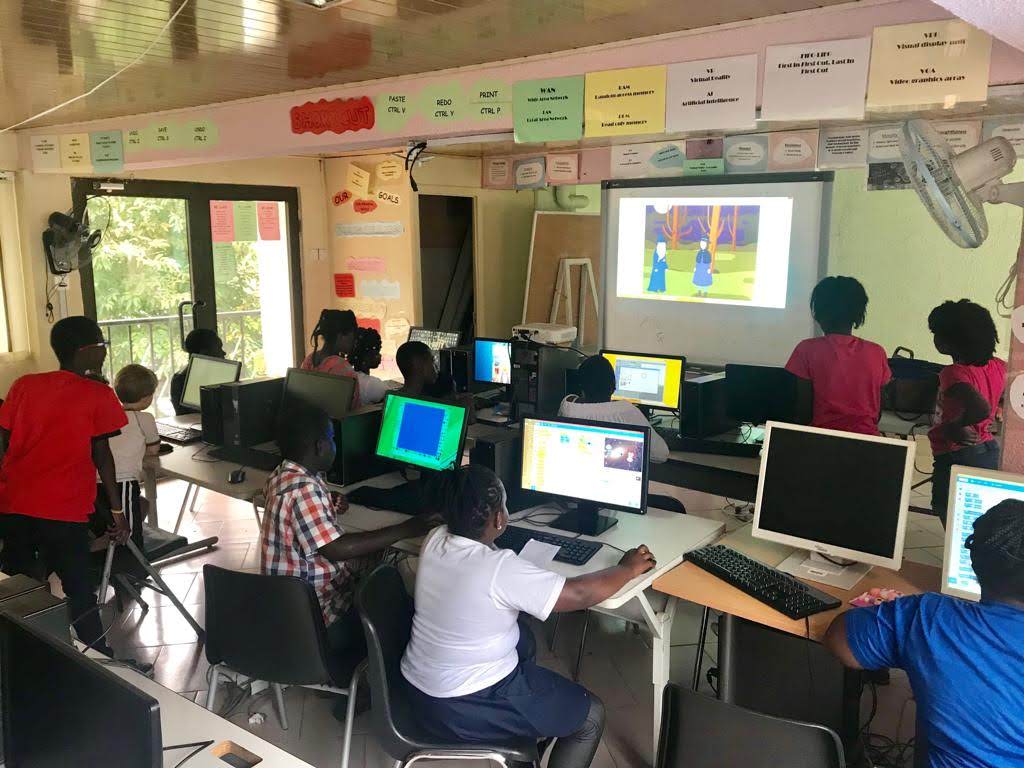The fourth industrial revolution presents amazing prospects. Emerging technologies such as robotics, artificial intelligence, blockchain, Internet of things, quantum computing, big data, cloud computing, machine learning, mobile applications, nanotechnology and 3D printing offer opportunities to improve the way we live. According to the 2019 International Finance Corporation (IFC) report entitled “Digital Skills in Sub-Saharan Africa: Spotlight on Ghana”, this revolution is expected to create over 9 million digital jobs by 2030.
But this digital revolution is not without significant challenges. A huge skills gap has emerged! These technologies are disrupting industries and changing how we work making it impossible for persons without digital skills to thrive in the workplace irrespective of their chosen career. This implies that there is an urgent need for new skills ranging from basic to advanced digital skills. For Ghana to compete favourably in the global digital economy, it is important everyone acquires basic digital skills and opportunities are also offered for intermediate and advanced digital skills.
To address this skills gap, we need to tackle a number of challenges associated with the development of a digital literate society. The challenges include affordability, scalability and sustainability of training, lack of qualified instructors, lack of infrastructure, relevant curriculum, etc. It is also crucial to look at issues of inequalities associated with gender, geographical location and persons with special needs.
Digital skills training must be affordable. One of the effective ways to provide affordable and sustainable digital skills training on a large scale is through the schools. Children and teenagers can be taught basic and intermediate digital skills that will form the foundation for their future work and lifelong learning. While the school system provides a solution for affordable training, we need training models that will also offer affordable training to young people who are out of school and jobless adults who require reskilling. There are a few training programmes around but they are either expensive or provided on a small scale. Advanced digital skills training is particularly expensive and will require funding models that will not make the cost of attending prohibitive.
For the basic digital skills, Ghana’s new ICT curriculum will be a good starting point. Digital skills curricula must be reviewed regularly because technology changes quickly. It is essential that training materials cover the skills, competencies and tasks needed for today and the future. There must also be a clear plan to update the curricula as technologies change.
At the centre of digital skills training is the role of instructors. Currently, we lack the personnel (in terms of quantity and quality) to deliver digital skills training nationwide. At the Institute of ICT Professionals, Ghana we have had many interactions with teachers at the basic school level. Our teachers need to be trained in order for them to deliver the new ICT curriculum. At the intermediate and advance levels, instructors need training to improve their technical skills. This will enable them resolve the disparity between what educational and training institutions are teaching and what is needed for life and work.
Furthermore, Ghana like most developing countries must tackle the issue of infrastructure. ICT training programmes, whether face-to-face or online, require some facilities. Training will usually require a physical location such as a training centre or a computer lab. Computer labs are non-existent in our primary and secondary schools. Where they exist, the computers are either inadequate or outmoded. Computer labs in schools also lack internet connectivity which limits what can be taught or learnt. We need to improve broadband penetration and ancillary infrastructure such as electricity in rural Ghana. For advanced ICT training in fields such as Artificial Intelligence or Robotics, we require highly advanced labs and makerspaces. Such facilities will require a strategy to finance.
Finally, special attention must be given to gender divides and inequalities in the development of digital skills. Females make up approximately half of our population. Therefore, it is economically prudent to tap the talent in that segment of our society. Another group that requires attention are persons with disabilities. We need to invest in special software and hardware to train these individuals. We also need strategies for the elderly and marginalized populations living in underserved and unserved areas with little or no access to broadband. These groups will require tailored training that will address their needs.
As a country, the aim should be to provide children an early start, offer young people the skills needed to build successful careers and create avenues for adults to build skills at different stages of their careers. All these must be part of a conscious effort to build a digital economy. We, therefore, require a Digital Skills Development Strategy which details approaches to resolving these challenges. These will be addressed in part two of this article.
Author: Kuuku Sam – (Director of Programmes and Professional Services, Institute of ICT Professionals, Ghana)
For comments, contact author kuuku.sam@iipgh.org or Mobile: +233274333510





